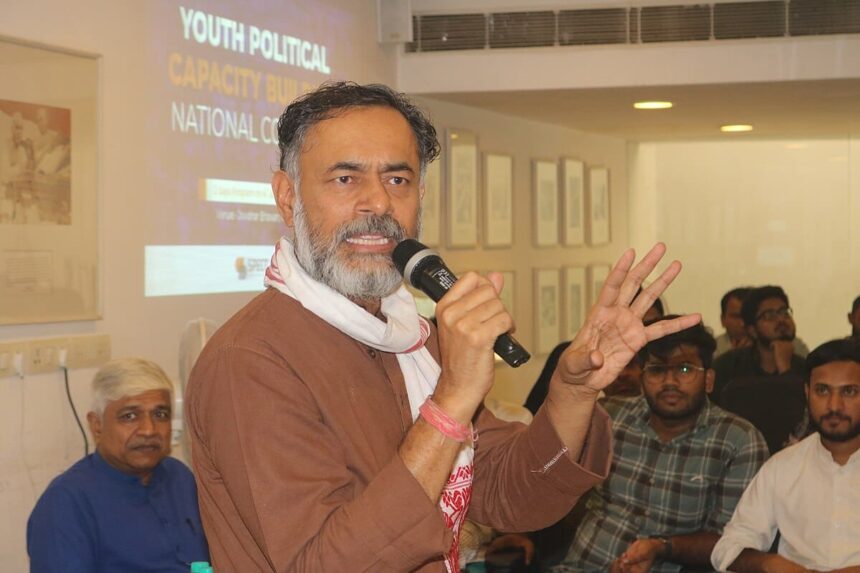Political activist Yogendra Yadav has raised concerns regarding the credibility of the Election Commission of India’s (ECI) final electoral rolls for Bihar, pointing out inconsistencies in new voter additions and a lack of transparency regarding deletions. This scrutiny comes as the state has seen nearly 68.5 lakh names removed, which critics argue constitutes a large-scale disenfranchisement of marginalized communities.
According to Yadav, the ECI reported receiving 16.93 lakh Form-6 applications for new voters by September 1, stating that any claims submitted after that date should not be included in the final rolls. However, data reveals that 21.53 lakh new voters have been added. “How did at least 4.6 lakh names get added after September 1?” he questioned in a social media post.
Yadav also highlighted the ambiguity surrounding voter deletions, noting that while the ECI indicated that 3.66 lakh voters were removed from the draft rolls, it has not provided a breakdown of these deletions. “How many of these names were deleted due to lack of eligibility documents? And how many were removed because of objections?” he asked.
The Election Commission released its final list on Tuesday, which recorded 7.42 crore registered voters, a 6% decrease from the 7.89 crore recorded in June following the three-month-long Special Intensive Revision (SIR).
The significant removals have drawn criticism from activists and opposition leaders, who allege the process has disproportionately affected marginalized communities, risking the disenfranchisement of vulnerable groups. Bihar Congress chief Rajesh Kumar questioned the integrity of the SIR exercise, asserting that concerns regarding fairness and transparency had persisted from the outset. “Congress workers will conduct a thorough evaluation of SIR across the entire state to assess how many names were added and how many were removed,” he stated, indicating the issue would not be resolved easily.
The sweeping deletions in Bihar’s final voter list have prompted backlash from opposition figures, including those from the Congress and left-leaning parties within the INDIA bloc. Critics have labeled the SIR a “vote theft” scheme, alleging systemic flaws that target vulnerable demographics.
Opposition leaders contend that the expedited process excluded millions of legitimate voters, particularly migrants, who constitute a significant portion of Bihar’s population and were unable to submit forms while working out of state. Although the ECI claims that 98% of deleted voters re-enrolled, many still face potential exclusion.
Reports have indicated that deletions may have been biased against Muslims, Dalits, backward classes, and women, with allegations that a strategy, allegedly supported by the BJP, seeks to undermine opposition strongholds. A concerning trend was noted in Muslim-majority areas, where claims surfaced that as many as 80,000 Muslim voters were removed from a single constituency, Dhaka in East Champaran.
The SIR was announced suddenly in June, raising questions about its practicality given the diversity and high migrant population of Bihar. Reports suggest that house-to-house verification efforts missed numerous households, and stringent initial document requirements excluded many from poorer and marginalized communities, especially given that only 2.8% of Biharis born between 2001 and 2005 possess a birth certificate.
Tags: Yogendra Yadav, ECI, Bihar voter list, discrepancies, mass deletions
Hashtags: #Yogendra #Yadav #questions #ECI #Bihar #voter #list #discrepancies #criticism #mass #deletions










